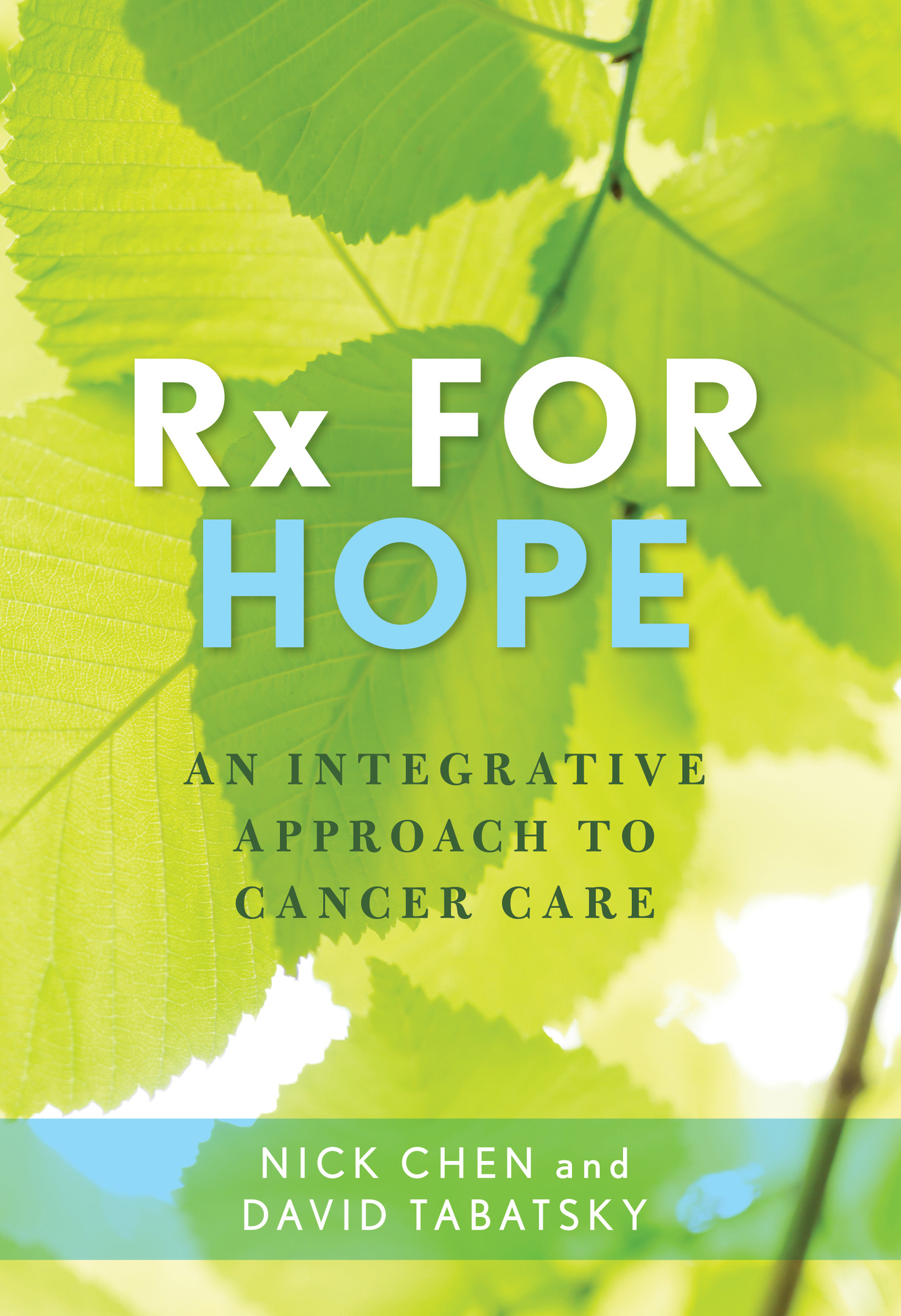Rx for Hope
Rx for Hope
An Integrative Approach
to Cancer Care
Nick Chen, MD
and
David Tabatsky
ROWMAN & LITTLEFIELD
Lanham Boulder New York London
Published by Rowman & Littlefield
An imprint of The Rowman & Littlefield Publishing Group, Inc.
4501 Forbes Boulevard, Suite 200, Lanham, Maryland 20706
www.rowman.com
Unit A, Whitacre Mews, 26-34 Stannary Street, London SE11 4AB
Copyright 2018 by The Rowman & Littlefield Publishing Group, Inc.
All rights reserved. No part of this book may be reproduced in any form or by any electronic or mechanical means, including information storage and retrieval systems, without written permission from the publisher, except by a reviewer who may quote passages in a review.
British Library Cataloguing in Publication Information Available
Library of Congress Cataloging-in-Publication Data Available
ISBN: 978-1-5381-0160-5 (cloth : alk. paper)
ISBN: 978-1-5381-0161-2 (electronic)
 TM The paper used in this publication meets the minimum requirements of American National Standard for Information SciencesPermanence of Paper for Printed Library Materials, ANSI/NISO Z39.48-1992.
TM The paper used in this publication meets the minimum requirements of American National Standard for Information SciencesPermanence of Paper for Printed Library Materials, ANSI/NISO Z39.48-1992.
Printed in the United States of America
Disclaimer:
This book represents reference material only.
It is not intended as a medical manual. This book is not a replacement for treatment(s) that the readers personal physician may have suggested. If the reader believes he or she is experiencing a medical issue, professional medical help is recommended. Mention of particular products, companies, or authorities in this book does not indicate endorsement by the publisher or author.
Acknowledgments
I want to acknowledge all my patients whose courage and intuition about life were the inspiration of my work in the first place. I want to thank all the staff at Seattle Integrative Cancer Center who create a warm, supportive environment for our patients and enable my work to be as smooth as possible.
I also want to thank my coauthor, David Tabatsky, and my agent, Nancy Rosenfeldwithout their perseverance and encouragement this book would not be possible. Thanks to Suzanne Staszak-Silva and staff at Rowman & Littlefield for editorial support. I want to give special thanks to Mr. Bruce Watson, a seven-year survivor of advanced pancreatic cancer whose story is in this book, and who also provided additional editorial work for this book while on chemotherapy.
I want to dedicate this book to my father, who passed away two and a half years ago. His deep knowledge of human immunology and his unfailing spirit of scientific inquisition still influence me today.
Finally, thanks to my wife, Lucia, and children, Emily and Kenny, who make my life complete.
Nick Chen, MD, PhD
Seattle, WA
My thanks to Nick Chen, his staff, and the many wonderful patients he serves so beautifully who I have been fortunate to meet in Seattle. Thanks to our agent, Nancy Rosenfeld (and to the memory of her dear friend, Jean-Yves Pave). Thanks to Suzanne Staszak-Silva and her colleagues at Rowman & Littlefield.
I wish this book had been around to help my father, and so many others I miss. Jan, Jeff, Nils, Bob, Dani, Linn, Claudia, Samuel, Jamie, and Rickthis is for you.
David Tabatsky
New York City
Introduction
Redefining Hope with a Commonsense,
Integrative Approach to Cancer Care
After receiving a terminal diagnosis of colon cancer in 2005, Richard underwent multiple rounds of conventional radiation and chemotherapy treatments at a series of large cancer centers, but his tumors did not respond and metastasized. Richard became a cancer refugee, searching the Pacific Northwest for options. Eventually he found us. My team and I were able to change what was once a death sentence into an ongoing journey of life sustaining treatments.
Ellen was diagnosed in 2002 with stage 4 lung cancer. She was told she had barely nine months to live and that her only hope was high-dose chemotherapy. Like Richard, she could not accept such a dismal prognosis and began a search for a more hopeful approach. When she eventually found us, she opted to follow my protocol of metronomic low-dose chemotherapy, along with the rebuilding of her immune system with diet, nutrition, and supplements. By the end of 2003, her tumor had shrunk into complete remission. She has maintained her health by following our integrative approach over the past fifteen years, and recently celebrated her eighty-ninth birthday with her family.
After surgery for prostate cancer in 2010, Robert was diagnosed a year later with aggressive stage 4 mantle cell lymphoma. Three different doctors agreed that the only option for Robert was a stem cell transplant, which might give him an additional five years, with likely relapses. They added that he probably would live for a year at most if he did not undergo the transplantation procedure. After meeting with us through a referral, Robert chose to follow our recommendation of receiving weekly low doses of chemotherapy, along with high-dose intravenous vitamin C and other dietary changes and supplements, for twenty-four weeks. This treatment resulted in complete remission that has now lasted over seven years. In response to these developments, Robert said, This was the first time I had any hope after being treated in multiple institutions like a number.
By conventional medical standards, there is no reason Richard, Ellen, or Robert should still be with us. They are thus living proof of the efficacy of the integrative approach to cancer care that our care team and I provide at the Seattle Integrative Cancer Center. They exemplify how low-dose metronomic chemotherapy and immunotherapy can boost the immune system and control cancer, effectively turning it into a manageable, long-term chronic illness.
These three patients, like hundreds of others we have treated, are the rule, not the exception. They demonstrate how a gentle and commonsense approach to cancer treatmentboth short- and long-termcan produce consistent results that conventional treatments often cannot. Its about hope and using the best of what science has to offer to harness the power of the immune system for cancer control.
Our integrative approach is qualitatively different from the way cancer has traditionally been treated. From my experience over the last fifteen plus years as an oncologist with a PhD in immunology, I have become convinced that the welfare of the immune system holds the key for success in all cancer treatments.
Considering the current state of medicine and the challenges of treating cancer, we are doing our patients a grave disservice by maintaining the status quo of conventional treatments. Despite the progress being made in research laboratories, conventional wisdomespecially when it comes to the model of maximally tolerated dose chemotherapy with disregard of patients general wellnessmust be challenged if we are ever going to improve the status of cancer care in this country from the perspective of patients.
Americas fascination with drugs never gets old. From aspirin for a simple headache to medicines for a depressed mood, we look to pills and shots to fix our bodies, no matter what the root cause may be.
Unfortunately, this approach also applies to the world of cancer, where most well-meaning oncologists inevitably prescribe chemotherapyand lots of iteven though cancer is a complicated disease requiring a multifaceted approach. It is now clear that cancer is affected by such factors as the interaction of mind and body, interaction between a tumor and its biological microenvironment, diet, nutrition, emotional well
Next page
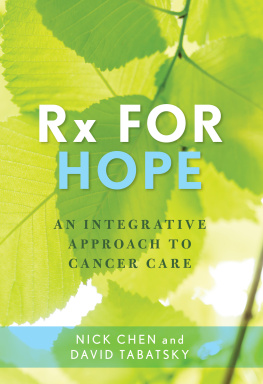
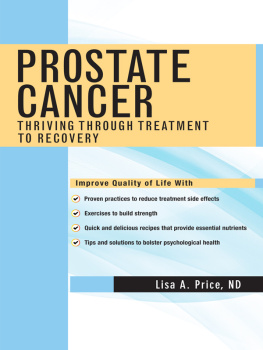
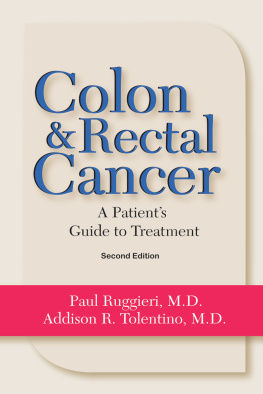
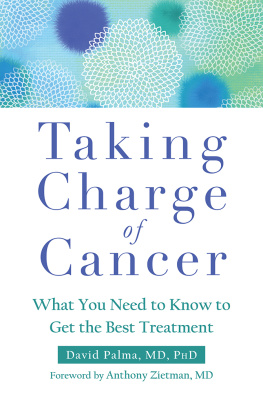
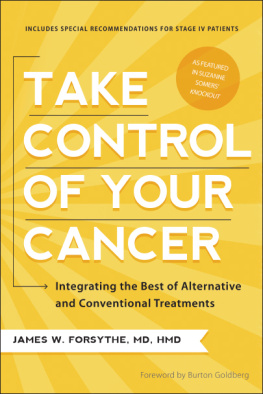
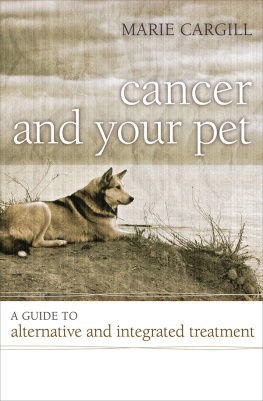
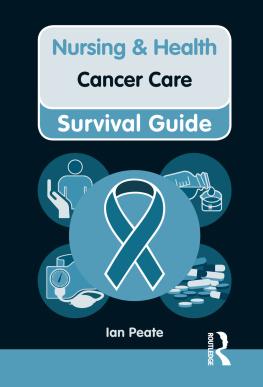
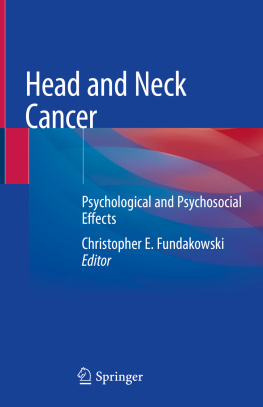
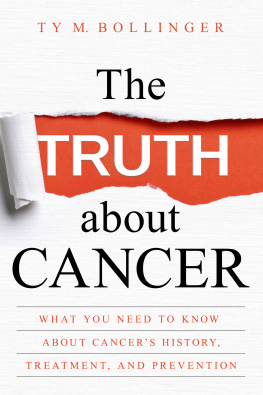
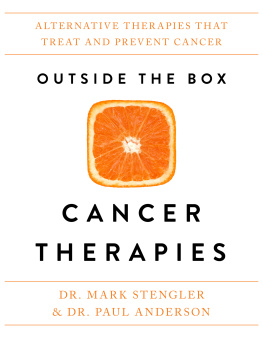
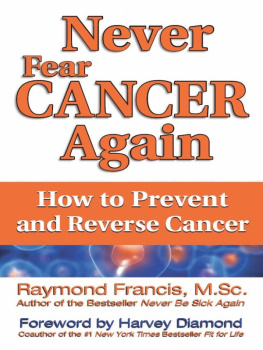

 TM The paper used in this publication meets the minimum requirements of American National Standard for Information SciencesPermanence of Paper for Printed Library Materials, ANSI/NISO Z39.48-1992.
TM The paper used in this publication meets the minimum requirements of American National Standard for Information SciencesPermanence of Paper for Printed Library Materials, ANSI/NISO Z39.48-1992.